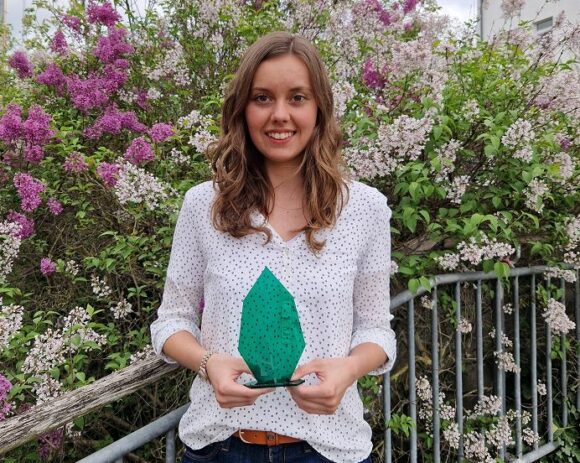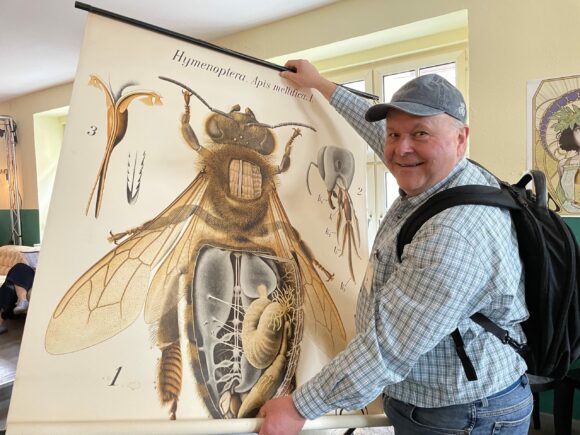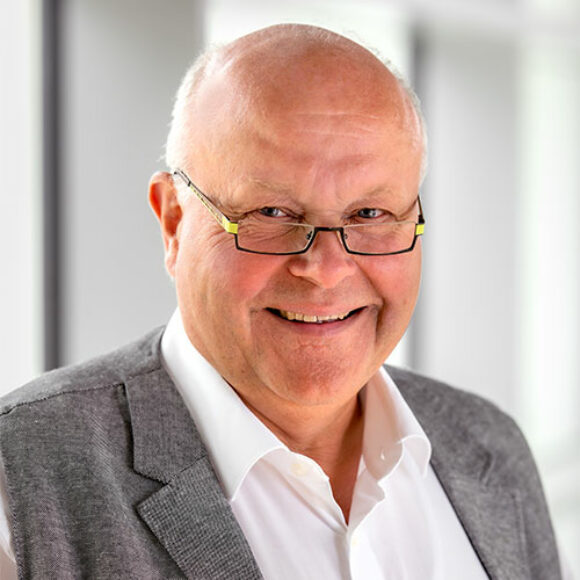Hofer Meinel-Bräu is not only the last remaining family brewery in the city on the Saale with a once dazzling brewing tradition – the brewery, located at the foot of the Theresienstein, can now also look back on almost three centuries of history. Now the family business is taking another step toward the future. Together with the Hof University of Applied Sciences, the company wants to make its own production processes more efficient and conserve resources. This means that Hof beer will soon be brewed in an even more environmentally friendly way than before.
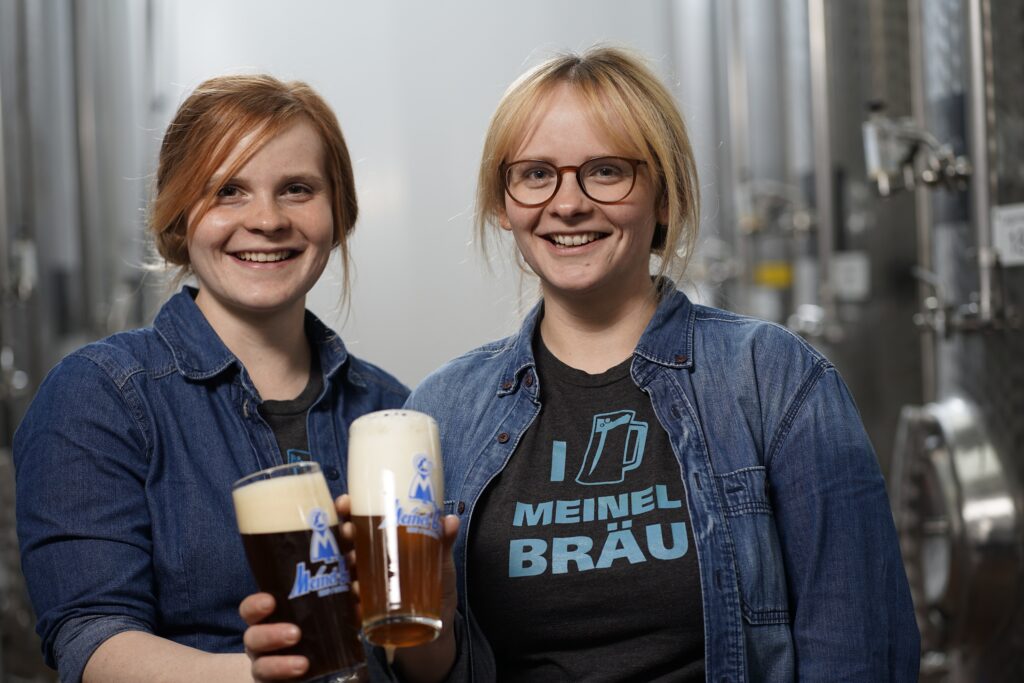
Dr. Andy Gradel and Christoph Hofmann are scientists at the Institute for Water and Energy Management at Hof University of Applied Sciences (iwe). Together with Prof. Dr. Tobias Plessing, the scientific director of the institute, they are currently implementing a project of the ERDF project “Green Technology Workshop Hof” at a site that beer connoisseurs and friends of the “Genussregion Oberfranken” would describe as “special” for good reason:
It is a wonderful task for us to be able to accompany one of the best-known family-owned companies in our region on its way toward more resource-efficient production.”
Dr. Andy Gradel
Analysis and documentation
The scientists’ work currently consists of taking a close look at the energy flows of the venerable traditional brewery and identifying any potential savings. “We are going into every detail, no matter how small,” says Christoph Hofmann. Together with brewery employees around the two brewmasters Monika and Gisela Hansen, all energy consumption points within the production cycle were determined and consumption profiles, flow rates and temperatures were extensively documented. At least once a month, they are on site to collect or check any data that is still missing.
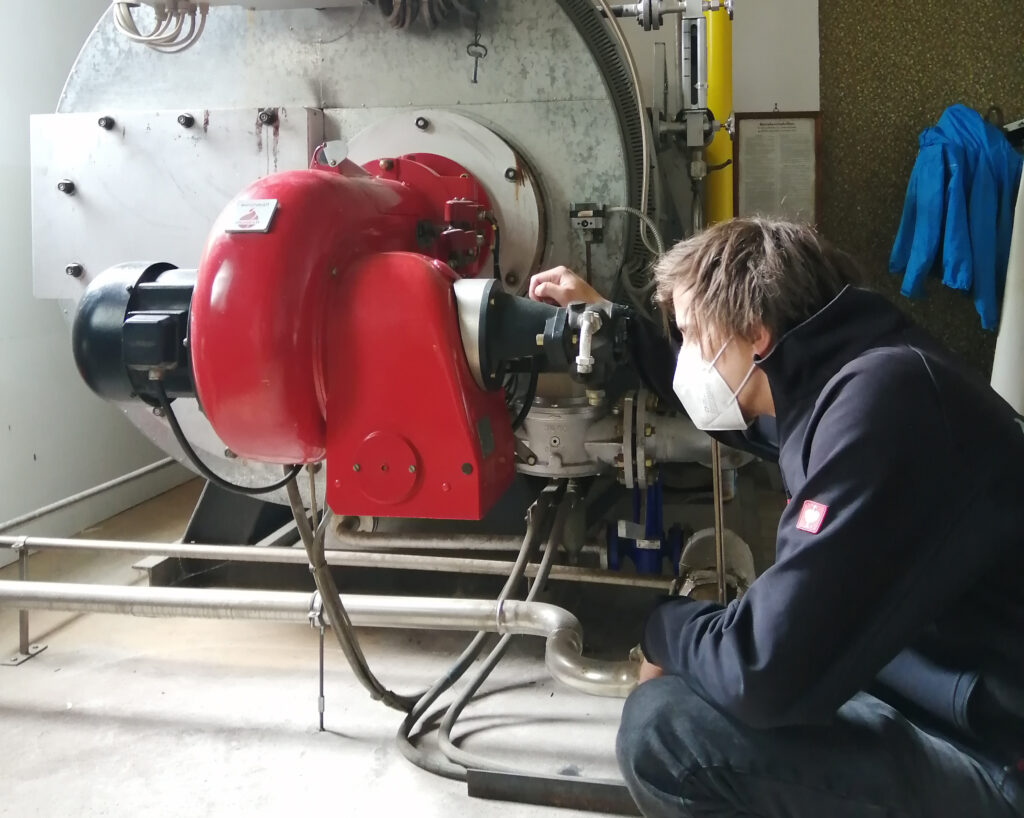
Digital brewery twin
“Then the real work begins,” says Prof. Tobias Plessing. “On the computer, we use all the data obtained to create a digital twin of the brewery. Potential savings can then also be calculated there – for example, by changing variable factors. Of course, the brewery can use this to save energy.” But the project is by no means just about saving electricity pure and simple: “At the end of the process, we will make proposals on how to integrate innovative approaches to energy generation and use into the existing plant in order to further improve the eco-balance,” explains Dr. Andy Gradel.
Energy efficiency and CO2 savings
For the Meinel family brewery itself, the scientists’ work is more than useful
Particularly for us as a medium-sized company competing with large breweries, energy efficiency and energy costs are playing an increasingly important role. We are therefore very happy to have found such competent partners in the researchers at Hof University of Applied Sciences, so that we can optimize our production and do something for the environment at the same time.”
Monika Hansen, master brewer
Life partner, graduate brewmaster and industrial engineer Karl-Ludwig Rieck agrees: “For us, the collaboration is more than positive: we gain greater transparency about our energy flows and also get a concept for savingCO2 for a more ecological product.”

Consistent quality and taste
Incidentally, contact between the brewery and researchers at Hof University of Applied Sciences came about at one of the many brewery festivals that took place there before the pandemic: “I was a frequent guest there as a musician with my band, and at some point you just get to talking. That’s how the idea of optimizing the brewery in terms of energy came about,” says Christoph Hofmann. However, according to Dr. Andy Gradel, there was one thing they agreed on from the start: “None of the upcoming changes should have any influence on the quality or taste of Hof beer.”
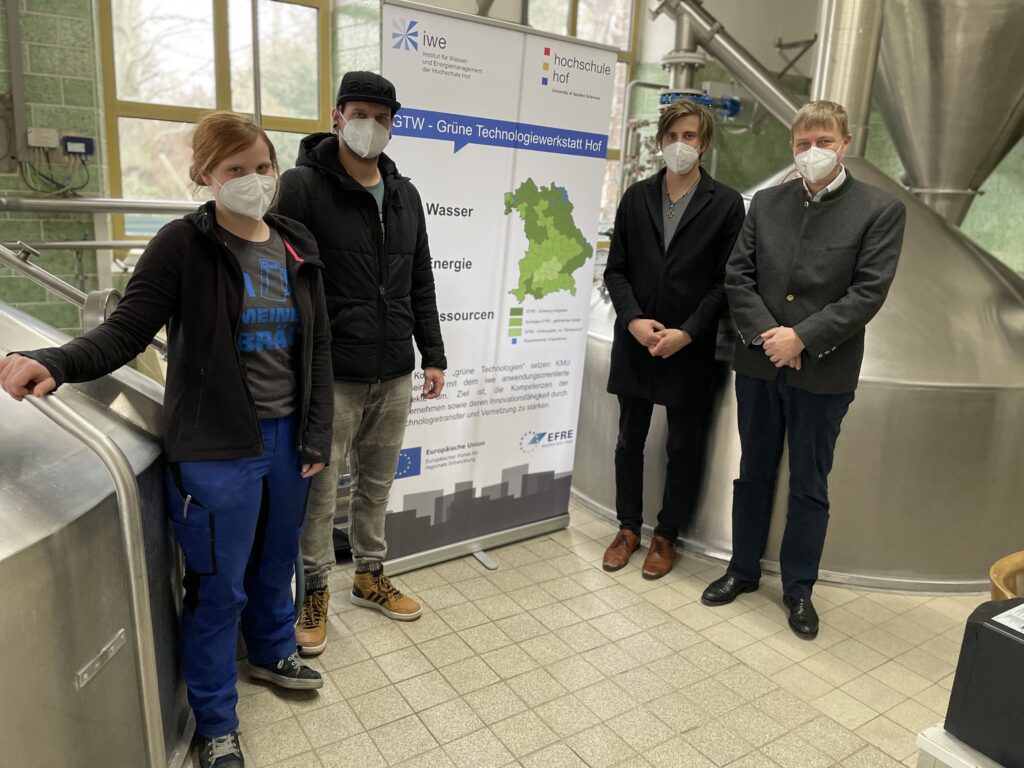
The project “Green Technology Workshop Hof” will run until the end of the year and is supported by the European Regional Development Fund (ERDF).




